Books: The latest tomes on the 1916 Easter Rising in Dublin ahead of the centenary
It is an emotive anniversary. Back in Easter Week 1916 (April 24th) a brave band of Irish men and women took up arms in Dublin in a battle for freedom against the mightiest empire the world had ever seen. Within a week a majority were dead or in captivity, with most of their leaders later put on trial and executed. The rebellion's bloody repression made swathes of the Irish populace sympathetic towards armed republicanism and helped pave the way for the partition. History is ever present in Ireland and a century on, tensions still run high, with political capital being mined from the rebellion as Easter draws near.
On a much more benign note, Ireland continues to be a wellspring of literary talent and a flood of new books on the rebellion has duly appeared. From examinations of James Connolly and the leaders of the uprising to a study of Eamon de Valera's conservative prime ministerial power, here is IBTimes UK's pick of the best literature.
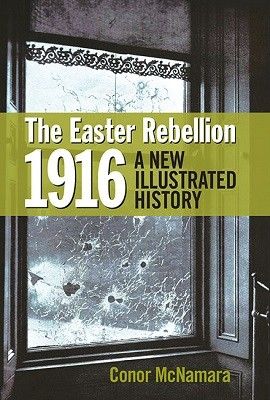
The Easter Rebellion 1916: A New Illustrated History, by Conor McNamara (Collins Press), £19.99
This stylishly produced volume provides a visual feast of memorabilia of the 1916 Rising
McNamara reproduces a fine selection of graphic memorabilia of the 1916 Rising. This was one of the first comprehensively-documented political rebellions of the twentieth century, so there is plenty of material to choose from. There are iconic photographs, extracts from personal notebooks, political cartoons, historic postcards, manuscript pages, letters and even World War One recruitment posters. McNamara also includes documentation concerning Ireland's revolutionary women and the experiences of the civilian population. There is also background material on the Gaelic Revival, trade unions and the Irish Republican Brotherhood. It all provides a visual feast, as well as a sobering backdrop to the tragic events.
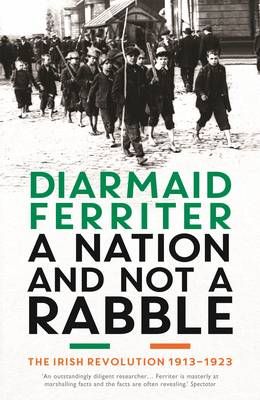
A Nation and Not a Rabble, by Diarmid Ferriter (Profile Books), £12.99
The 1916 Rising was the result of widespread economic inequality as well as terrible political injustice
Ferriter is an academic historian who has placed the 1916 Rising within a wider struggle for social and economic progress in Ireland. He begins his story with another upheaval in Dublin: the city's 1913 "lockout". To prevent unionisation employers stopped their workforces from entering their premises and replaced them with blackleg labour. One of the union organisers was James Connolly, a dedicated Marxist who helped to form a workers militia to protect the strikers. Connolly later became the most prominent military leader of the 1916 Rising and a nationalist hero. Ferriter recounts the experiences of workers and their leaders in an era when revolutionaries and nationalists were so often one and the same.
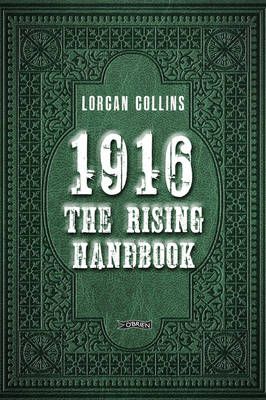
1916: The Rising Handbook, by Lorcan Collins (O'Brien Press), £11.99
This engaging primer on the 1916 Rising gives you the facts and avoids the mythology
Fact and fiction are hard to disentangle when it come to the Easter week events in Dublin in 1916. Collins' day job is running walking tours around Dublin all about the 1916 Rising. He has devoted much of his adult life to researching the facts behind the rebellion and many of them are set out in bite-sized chunks in this handy primer. As well as profiles of the 16 executed leaders, he provides details of the organisations involved, the weapons used, the buildings and positions occupied, the documents passed around, and the speeches that were made. There is also information about the women who took part in the fighting and on the insurrections outside Dublin.
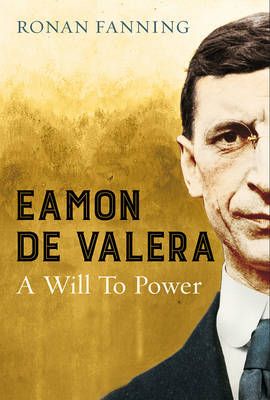
Éamon de Valera: A Will to Power Hardcover, by Ronan Fanning (Faber), £20
The ultra-conservative leader who dominated the Irish Republic for almost three decades
De Valera was the sole surviving commandant of the 1916 Rising, escaping execution partly because he was little known to the British. In a further irony, controversy continues over whether he was a competent military leader during the fighting itself. Nonetheless, after winning power as the head of Fianna Fáil in 1932 he was to dominate Ireland politics for much of the following three decades. An ultra-conservative premier, he scolded subordinates like a strict schoolmaster. De Valera managed to securely establish an independent Republic, but could not overcome partition. Fanning's biography represents an elegant consolidation of earlier historians' works, as well as rebutting the widespread belief that De Valera was anglophobic.
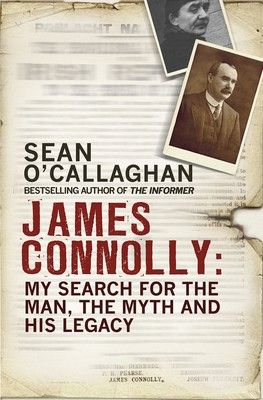
James Connolly: My Search for the Man, the Myth and his Legacy, by Sean O'Callaghan (Century), £18.99
Connolly's life becomes a case study for this examination of the factors that inspire martyrdom
Connolly was the commandant of the Dublin Brigade in the Rising. After being wounded, he was tied to a chair and executed by the British, thus passing into legend as a nationalist martyr. O'Callaghan, meanwhile, is a former IRA terrorist who now describes himself as a reformed fanatic. He uses Connolly as a case study to examine what motivates individuals to sacrifice themselves for sacred causes. Misinformation plays a key role: O'Callaghan reminds us that the 1916 Rising had negligible popular support: the volunteers were only 1% of the number of Irishmen who joined the British Army to fight in the First World War. Nevertheless, Connolly's life story continues to inspire Republicans to this day.
© Copyright IBTimes 2025. All rights reserved.





















